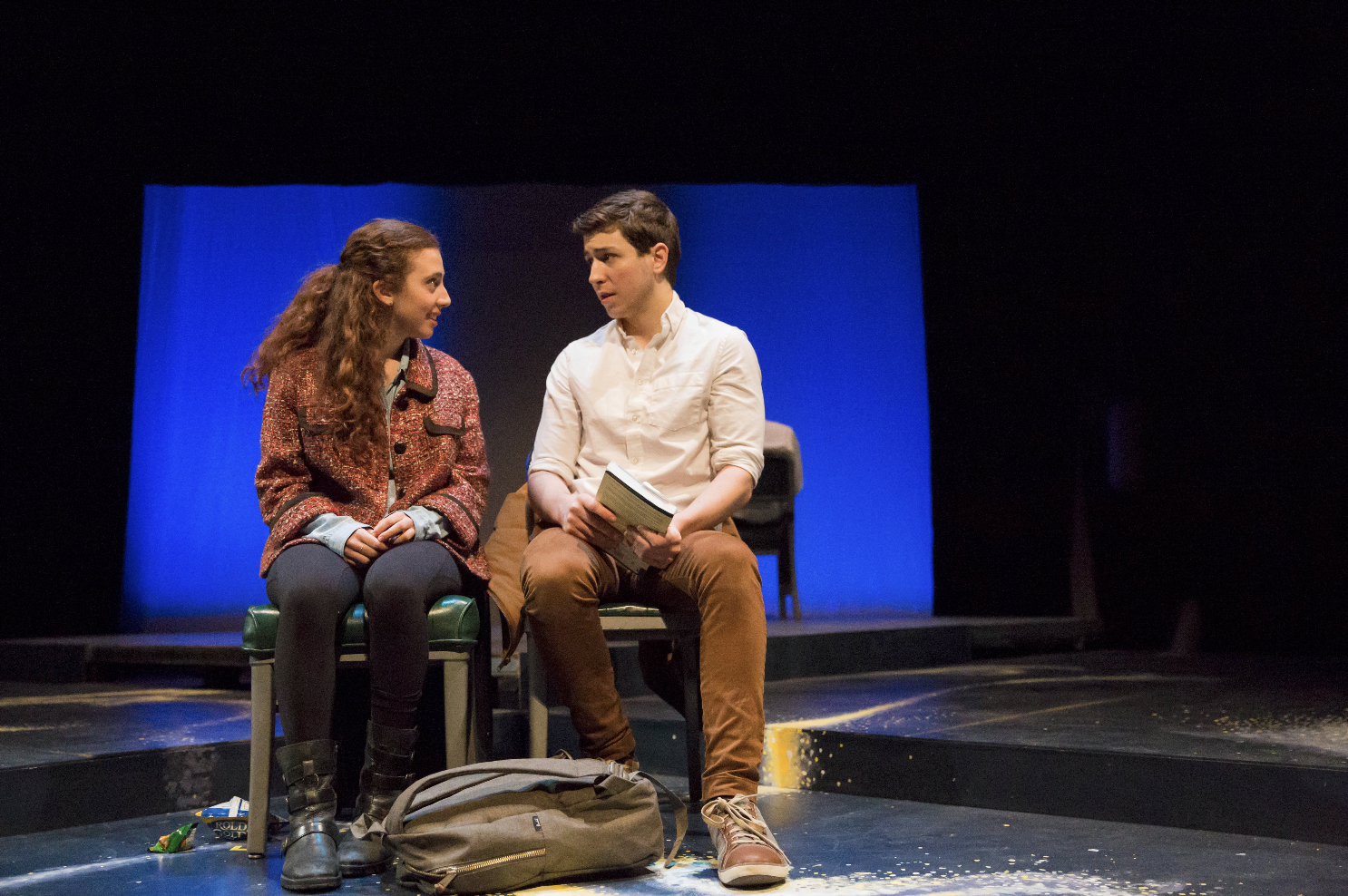
Nina Goodheart
The Yale Dramatic Association’s First-Year Show, “Quake,” covers distance geographically and romantically and demands that you decide early just to go along with it.
The protagonist, Lucy (played by Samara Angel ’21), introduces herself to the audience with a mystical monologue that doesn’t elucidate much about her background. Then she launches into a quest for love. Her journey takes on a startling pace, both in the number of relationships she moves through and the progress she achieves within each one.
Angel plays her character with a loveable earnestness, seeing in her first encounter with every man the relationship she’s looking for. She also cultivates a quirky air that enables her to bounce between scenes with little transition.
After her monologue, Lucy launches into dialogue and a relationship with the first person she meets, a man living in the woods. Over the course of one hug, the time in the play has accelerated a few months. A storm hits and gives Lucy the chance to leave her first romantic disappointment. She walks out of the gale and into a coffee shop, where she immediately begins her search anew.
Such is the format of the play. In some scenes, only a few introductory exchanges separate Lucy and her potential lover from a passionate embrace. At other points, you see very clearly her hopelessness, such as when she joins a jock (played by Liam Elkind ’21) for an intense bike ride date.
Strong supporting performances keep the play entertaining and convince the audience to continue to suspend their disbelief through an eclectic array of scenes. In addition to Elkind’s comedic and convincing fitness freak, Noah Parnes ’21 lights up the stage with an eccentric psychiatrist parody, Alec Dai ’21 plays in the shallow waters of a rich fashion tycoon’s mind and Aidan Swift ’21 darkens the room with a cold physicality in one of Lucy’s most daunting relationships.
Besides Lucy, the play contains only one other consistent presence: That Woman (played by Emma Rutan ’21), an astrophysicist-turned–serial killer. That Woman’s presence moves from the news to Lucy’s dream and eventually into her literal life. Rutan establishes a strong presence on stage. She delivers manic monologues and expresses tragic feelings of loneliness with an engrossing force. As Lucy moves from man to man, her thoughts stay fixed on That Woman.
The play makes use of light and sound to add to its surreal vibe. Lighting and sound designers, Chris West ’21 and Ethan Treiman ’21, respectively, clothe the play with a certain other-worldliness. At times a disembodied voice joins the speech of Lucy in unison, and in another stirring moment the stage soaks in a bloody red glow. And a night sky of stars covers the set in the penultimate scene.
Max Teirstein ’21, who is making his directorial debut with the show, writes in the program that “Quake” is “a story of surviving trauma. Of a culture of objectification and toxic masculinity. Of always wanting more, of discovering your sexuality, and of realizing your role models do not quite live up to who you imagined them to be.”
The play indeed encompasses a variety of themes, though the disjointed nature may obscure some of them. Lucy is not a full character in the traditional sense, with her lack of detailed background or even relatability. She courts each person she meets in a manner difficult to understand or identify. Rather than a specific, dynamic character, she appears to function more as a generalized persona.
The shift between her search for a soulmate and her absorption with That Woman reflects a tension between maintaining individuality and the desire for companionship. Her unusual alacrity to enter the several relationships of the show inspire confusion, while the situations they lead to cultivate sympathy as well.
Perhaps conveying these interwoven themes and reactions are the purpose of the play: a surprising, steady progression through the fluctuations of moving in and out of relationships — of being absorbed and disillusioned with love.
Tommy Martin | tommy.martin@yale.edu







